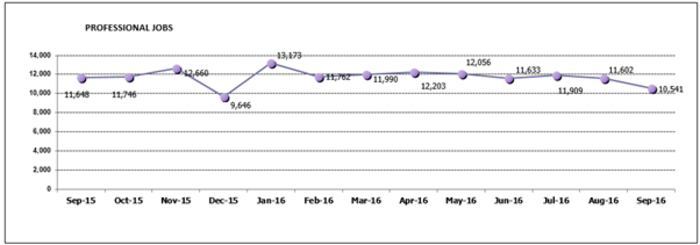There has been a surge in demand for Nordic language skills for Irish jobs
Recruitment firm Morgan McKinley says multinationals want the staff for customer-service roles.
DEMAND FOR NORDIC language speakers in customer service jobs has skyrocketed in Ireland, according to new jobs figures.
The latest monthly ‘employment monitor’ from recruitment firm Morgan McKinley Ireland found that, for the first time ever, Scandinavian languages were the most in-demand group, overtaking German.
Trayc Keevans, director of inward investment at Morgan McKinley Ireland, told Fora that the firm has seen this kind of behaviour with a number of client companies.
“It hasn’t been anything very dramatic, but it has been consistently up there with the top languages,” she said. “It’s not any one or two companies. It’s pretty much all of the multinational companies that have businesses in Nordic regions.
“A few of them, not a lot, have actually taken the decision to close operations that they have in those countries and bring them to Ireland,” she said.
“Typically Nordic speakers are not in huge supply, but there’s a very good concentration of them in Ireland because of the multinational clusters that exist here.”
Uncertainty
Overall, the employment monitor found that just over 10,500 jobs came onto the market in September – 10% less than the same month last year.
Keevans blamed the slowdown in hiring on the UK’s decision to leave the European Union, noting that companies are hesitant about “committing traditional spend on new hires” because of uncertainty after the June referendum.
“With the continuing uncertainty after Brexit, we’re seeing our clients adopting a ‘wait-and-see’ approach,” Keevans said.
“If you look at some of the most in demand roles likes quality engineers and risk professionals and audit tax professionals, there has been been a longer time to hire for companies.”

Click here to view a larger version
For the first time this year, the pharmaceutical sector outperformed the IT sector in terms of job creation, with most opportunities coming from firms outside Dublin, according to Morgan McKinley.
“Both of them are two very vibrant sectors,” Keevans said. “We’ve some of the new tech companies that have come in take a more conservative approach to hiring than we’ve seen previously.”
She said that her company has seen “huge growth” in hiring among pharma firms.
“We’ve seen a lot of new entrants into the market over the last six months. That’s starting to generate now in terms of hiring.
“We’ve had a lot of enquirers internationally from pharma companies that are looking strongly at Ireland. It’s a very good time to be working in that sector.”
Cyber security demand
The requirement for cyber security professionals is also increasing, according to the report.
 Demand for cyber security workers is up
Demand for cyber security workers is up
A separate study by security giant Kaspersky Labs – which recently announced the opening of its first European research and development centre in Dublin – predicted that there will be a shortage of 1.5 million security professionals working in the cyber field by 2020.
The company’s founder, Eugene Kaspersky, said the lack of cyber security entry-level positions at businesses worldwide – and in Ireland – is putting even those interested in the area off pursuing a career in the sector.






